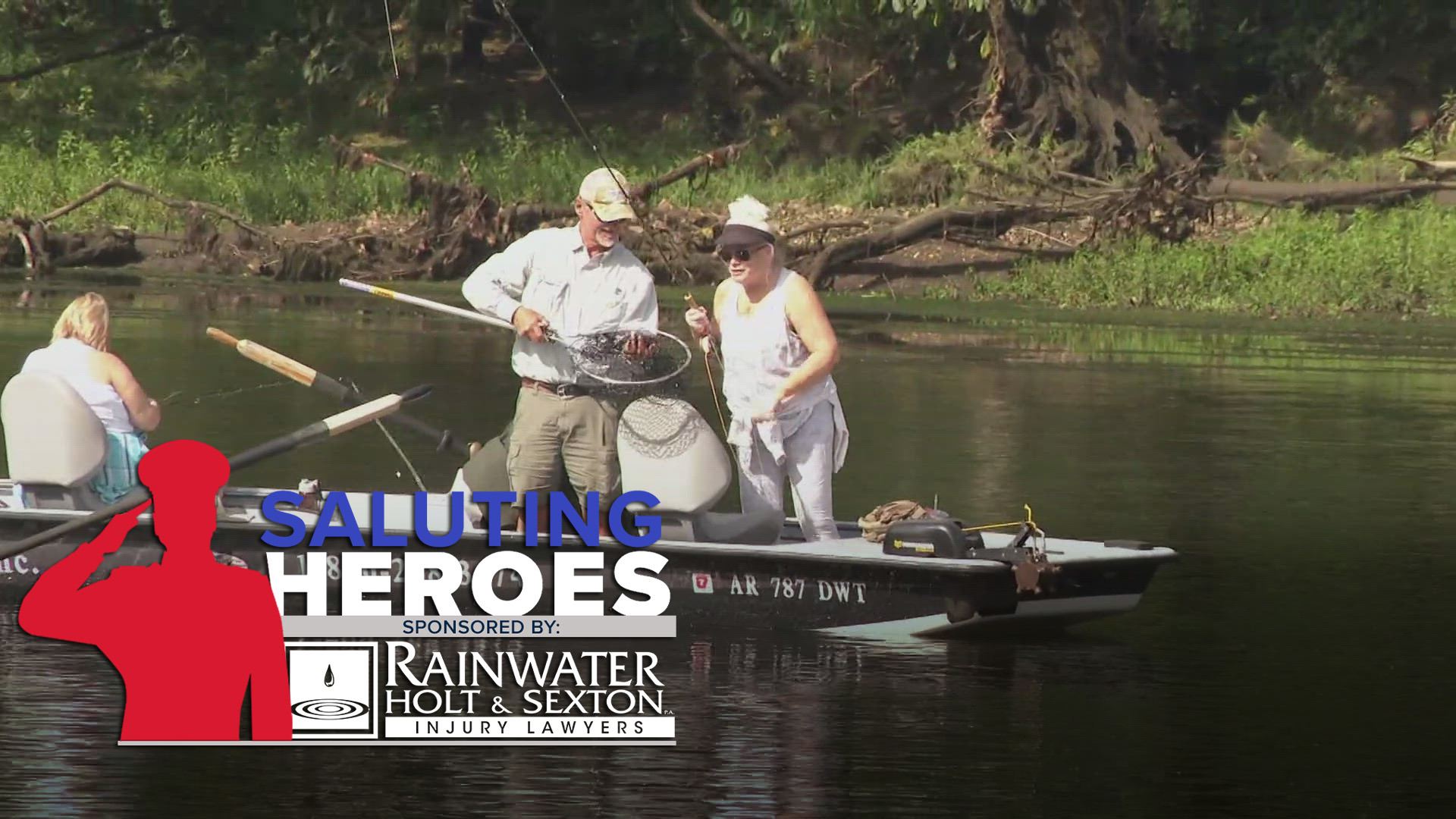COTTER, Ark. — The banter and ribbing should flow freely on a good fishing trip, and it's apparent on a recent late-summer excursion on the White River near Cotter.
Under clear skies, the group appears easygoing despite the fact that many in the party didn't know each other until two days ago. The reason they are all in the party, despite not having known each other before, is because of very hard experiences.
"They're trained to be hard and to meet and force whatever they're met with," said Levi Crawford, the marketing director for Rivers of Recovery. "They're trained not to cry about everything. They aren't able to be reached by trained hospital doctors, because that's a weakness to them."
Crawford described the paradox that he once faced upon returning home from war.
That paradox has been a problem for people recovering from seeing and experiencing the worst things in those wars. With medical science options exhausted, Crawford has been trying some natural science by fly fishing in a river— hoping to catch recovery.
"I was introduced to it, not knowing I needed it," said Crawford.
The Jonesboro native is lucky to be here after two combat tours with the Army National Guard, first in Iraq and then in Afghanistan. The latter was cut short when a rocket-propelled grenade nearly killed him.
He explained how doctors managed to bring him back twice when he flat-lined on the operating table. Crawford went on to defy those doctors when they told him his limitations, including being blind in his left eye and with almost no feeling in his reattached right arm.
"The hospital doctor [said], 'No, you're not walking, you're not doing this,' and next thing you know, I'm I'm doing it," Crawford described. "Physically, I thought I was Superman. I could do all of it. And then I got home, and it's like the bills and the mental part of it I wasn't ready for."
It's at this point that far too many combat veterans get lost in the fog, including Crawford.
The organization, Rivers of Recovery, was about four years into developing its model when they reached out to him.
"I got a call one day from Amy Simon, which is our CEO, and she just said, 'Do you want to go fishing?' I'm like, I'm a country boy who grew up that way. I'm, like, yeah sure. What's the catch," he described.
However, there was no catch, other than the hopeful bounty in their nets.
The non-profit organizes, curates, and guides these combat vets on fly fishing trips, including setting up accommodations, securing boats and experts who know where the fish are running.
The organization is national and relies on donations to pay for these trips. Then they let the healing power of this specific sport provide therapy.
"We take them outdoors, and then sitting by the fire or sitting by a river that's running with like-minded combat veterans that have, a lot of times, experienced the same situations, it just comes out," Crawford said.
Crawford isn't a licensed therapist, but the organization has amassed plenty of data to show how this helps these people, including the specifics of fly fishing.
Founders chose it because it's active, and with intricate learned skills that require a certain range of motion.
"There's casting, and there's an art to it, and there's things you gotta figure out," said Crawford. "Anybody, once they figure out something new, it's an accomplishment. It's a pep up."
Fifteen years into organizing these trips, Rivers of Recovery is adding a new layer to its outreach on this Arkansas excursion. This travel party is mostly female. Crawford explained that their reasons for coming along are slightly different than a typical male disabled combat veteran, but no less important.
"The nature of the service now is that a lot of these women have got a husband that served too, and they've never been offered anything like the benefits their husband gets," he said. "In the back of their mind are questions: Do I deserve it? What did I do wrong? The answer is: nothing. There's just a void of service there."
In the end, Rivers of Recovery is focused on families.
They let the women on this trip know their service mattered. They let all of their guests know there are people who understand what they endured, with the goal of returning them to their families able to face what lies beyond the river bend.
"It did me more good than what I realized," said Crawford. "Getting home, friends and family were like, 'You're completely different from a week and a half ago.' And I was like, all I've been doing is fishing."
If you'd like to make a donation to Rivers of Recovery, please click here.

